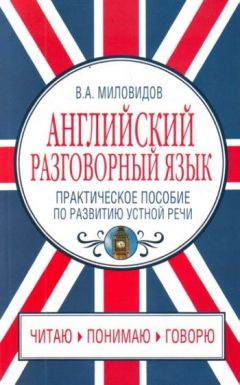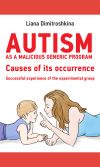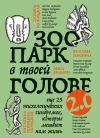
Автор книги: Виктор Миловидов
Жанр: Иностранные языки, Наука и Образование
Возрастные ограничения: +12
сообщить о неприемлемом содержимом
Текущая страница: 1 (всего у книги 16 страниц) [доступный отрывок для чтения: 5 страниц]
В.А. Миловидов
Английский разговорный язык
Практическое пособие по развитию устной речи
Предисловие
Настоящее издание – практическое пособие по развитию устной речи. В книгу включены тексты, в которых детализируется материал, представленный в уроках учебного пособия «Новый английский для экономистов»[1]1
Миловидов В.А. Новый английский для экономистов. – М.: Астрель: АСТ, 2006.
[Закрыть], а также дается дополнительная информация по важнейшим темам «экономического английского». Серьезные аналитические тексты сопровождаются шутками, забавными историями – которые, несмотря на свой развлекательный характер, также несут полезную информацию и языкового, и экономического характера.
Каждый текст сопровождается словарем и списком использованных словосочетаний, а также минимальным количеством упражнений, направленных на лучшее осмысление и запоминание информации. Тексты для дополнительного чтения взяты из компьютерного варианта газеты The Financial Times Limited[2]2
Интернет сайт: http://www.ft.com
[Закрыть]. В конце книги дается словарь и общий перечень словосочетаний, имеющих терминологический статус.
Книгой можно пользоваться как на занятиях английским языком в группе, так и при самостоятельном изучении «Делового английского».
1. Экономические системы
(The World Economic Systems)
Study The World Economic Systems and say what you would do if you had two cows…
Feudalism: You have two cows. Your lord takes some of the milk.
Pure socialism: You have two cows. The government takes them and puts them in a barn with everyone else's cows. You have to take care of all the cows. The government gives you as much milk as you need.
Bureaucratic socialism: You have two cows. The government takes them and puts them in a barn with everyone else's cows. They are cared for by ex-chicken farmers. You have to take care of the chickens the government took from the chicken farmers. The government gives you as much milk and as many eggs as the regulations say you should need.
Fascism: You have two cows. The government takes both, hires you to take care of them, and sells you the milk.
Pure communism: You have two cows. Your neighbours help you take care of them, and you all share the milk.
Russian communism: You have two cows. You have to take care of them, but the government takes all the milk.
Dictatorship: You have two cows. The government takes both and shoots you.
Singapore democracy: You have two cows. The government fines you for keeping two unlicensed animals in an apartment.
Militarism: You have two cows. The government takes both and drafts you.
Pure democracy: You have two cows. Your neighbours decide who gets the milk.
Representative democracy: You have two cows. Your neighbours pick someone to tell you who gets the milk.
American democracy: The government promises to give you two cows if you vote for it. After the election, the president is impeached for speculating in cow futures. The press dubs the affair «Cowgate».
British democracy: You have two cows. You feed them sheep's brains and they go mad. The government doesn't do anything.
Bureaucracy: You have two cows. At first the government regulates what you can feed them and when you can milk them. Then it pays you not to milk them. After that it takes both, shoots one, milks the other and pours the milk down the drain. Then it requires you to fill out forms accounting for the missing cows.
Anarchy: You have two cows. Either you sell the milk at a fair price or your neighbours kill you and take the cows.
Capitalism: You have two cows. You sell one and buy a bull.
Hong kong capitalism: You have two cows. You sell three of them to your publicly listed company, using letters of credit opened by your brother-in-law at the bank, then execute a debt/equity swap with associated general offer so that you get all four cows back, with a tax deduction for keeping five cows. The milk rights of six cows are transferred via a Panamanian intermediary to a Cayman Islands company secretly owned by the majority shareholder, who sells the rights to all seven cows' milk back to the listed company. The annual report says that the company owns eight cows, with an option on one more. Meanwhile, you kill the two cows because the Feng Shui is bad.
Environmentalism: You have two cows. The government bans you from milking or killing them.
Feminism: You have two cows. They get married and adopt a veal calf.
Totalitarianism: You have two cows. The government takes them and denies they ever existed. Milk is banned.
Political correctness: You are associated with (the concept of «ownership» is a symbol of the phallocentric, war-mongering, intolerant past) two differently-aged (but no less valuable to society) bovines of non-specified gender.
Counter culture: Wow, dude, there's like… these two cows, man. You got to have some of this milk. Far out! Awesome!
Surrealism: You have two giraffes. The government requires you to take harmonica lessons.
Japanese democracy: You have two cows. You give the milk to gangsters so they don't ask any awkward questions about who you're giving the milk to.
European federalism: You have two cows which cost too much money to care for because everybody is buying milk imported from some cheap east-European country and would never pay the fortune you'd have to ask for your cows' milk. So you apply for financial aid from the European Union to subsidise your cows and are granted enough subsidies. You then sell your milk at the former elevated price to some government-owned distributor which then dumps your milk onto the market at east-European prices to make Europe competitive. You spend the money you got as a subsidy on two new cows and then go on a demonstration to Brussels complaining that the European farm-policy is going to drive you out of your job.

Eastern european democracy: You have two cows. You sell the milk (diluted with some water) at a high price to the neighbours or to anyone at the open-air market. If somebody asks for receipt, you charge for a two times higher price, so nobody will request an invoice. For concerned families with small babies you claim that the milk is «bio», though you collect the grass for feeding at the side of the highway and you keep the milk in plastic barrels used previously as containers of dangerous chemicals. Later, your neighbour or anybody from town will steal the cows and you will buy their meat for a high price, and if you ask for a receipt, you will be charged for a two times higher price.
Finnish socialism: You have two cows. Soon you have to kill one of them because in the Netherlands there is an overproduction of milk and the European Union rules say so. When you do so, you realize that it was not necessary, only the system was too slow in getting you the up-to-date news. From the stress, you get an ulcer in your stomach so you go to a doctor. The doctor realizes that this ulcer is a serious one, so you need an urgent treatment. Therefore, you soon get a call to the local hospital. The call's date is for 3 months later, because there is a queue with more urgent cases. Then your ulcer becomes even more serious because you remember that 40 percent of your income is taken for social tax.
Слова и выражения:
"bio" – «био» (продукт)
adopt– здесь: усыновлять, удочерять
affair – дело, афера
anarchy – анархия
animal – животное
annual – ежегодный
apartment – квартира
associated – ассоциированный, ассоциирующийся
awkward – нелепый
ban (from) – запрещать
barn – амбар
barrel – бочка
bovine – коровий; здесь (иронич.): коровоподобное существо
brain – мозг, мозги
brother-in-law – шурин (деверь)
bull – бык
bureaucracy – бюрократия
bureaucratic – бюрократический
chemical – химическое вещество
claim – требовать, провозглашать, объявлять
collect – собирать
competitive – конкуренто – способный
complain – жаловаться
concept – концепт, концепция, представление
container – контейнер
correctness – корректность
cow – корова
debt – долг, долговое обязательство, задолженность
democracy – демократия
deny – отрицать, отвергать
dictatorship – диктатура
dilute – разбавлять, разводить
distributor – дистрибьютор, оптовый торговец
draft – здесь: призывать на воинскую службу
drain – канава, дренажная труба
dub – называть, обзывать
dude – парень, приятель (сленг: форма обращения)
dump – заниматься демпингом
election – выборы
elevated – поднятые, завышенные
environmentalism – социально-политическое движение, озабоченное сохранением окружающей среды
equity – чистая стоимость капитала, акция, доля акционера в капитале
ex-chicken – здесь: в прошлом ухаживавший за курами
execute – исполнять, проводить (операцию, сделку)
exist – существовать
fascism – фашизм
federalism – федерализм
feed – кормить, скармливать
feminism – феминизм
feudalism – феодализм
fine – штраф; штрафовать
form – форма (документа)
former – прежний
fortune – судьба, фортуна, состояние
gangster – гангстер
gender – пол, род (как категория)
giraffe – жираф
grant – грант; наделять, выделять, гарантировать
harmonica – гармоника
highway – шоссе
impeach – подвергать импичменту
intermediary – посредник
intolerant – нетерпимый
invoice – накладная
lord – хозяин, господин
mad – сумасшедший
majority – большинство (акционеров)
meanwhile – тем временем
militarism – милитаризм
milk – молоко; доить (корову)
miss – пропадать, исчезать, отсутствовать, скучать (по чему-либо)
overproduction – перепроизводство
ownership – владение, обладание
pick – находить, поднимать, подбирать, выбирать
plastic – пластмассовый
pour – лить, проливать
press – пресса
previously – прежде, в предшествующий период
pure – чистый, беспримесный
queue – очередь
realize – осознавать, понимать
receipt – товарный чек
regulations – законы, ограничения, предписания
representative – представитель; представительная
request – требовать
require – требовать
rules – правила
share – акция; делить, разделять (с кем-либо что-либо)
shareholder – акционер
sheep – овца, овцы
shoot – стрелять, расстреливать
speculate – спекулировать
steal – воровать
stomach – желудок
subsidise – субсидировать
subsidy – субсидия
surrealism – сюрреализм
swap – обменная операция
symbol – символ
totalitarianism – тоталитаризм
transfer – трансферт; передавать, переводить
treatment – обращение (с кем-либо), лечение
ulcer – язва
unlicensed – не имеющая лицензии
urgent – экстренный, спешный, немедленный
veal calf – теленок
via – через, при посредничестве
vote – голос (на выборах); голосовать (на выборах)
take care of – заботиться (о ком-либо)
cow futures – «коровьи фьючерсы»
"Cowgate" – «Коровогейт» (по аналогии с названием Watergate – «Уотергейт», делом, которое стоило поста президенту США Ричарду Никсону)
go mad – сходить с ума
fill out – заполнять (формы, документы)
account for – объяснять, отчитываться (за что-либо)
fair price – честная цена
publicly listed company – акционерное общество открытого типа, подписавшее соглашение с фондовой биржей, где котируются его акции
letters of credit – аккредитив
debt/equity swap – обмен долговых обязательств на акции предприятия
general offer – генеральное предложение
tax deduction – налоговая льгота
keep milk rights – владеть правами на молоко
majority shareholder – держатель контрольного пакета акций
with an option – с опционом (приобретения)
the Feng Shui – фэн-шуй
get married – вступать в брак
phallo-centric – фаллоцентрический
war-mongering – агрессивный, стремящийся к войне, разжигающий войну
differently-aged – разновозрастный
no less valuable – не менее ценный
non-specified gender – не определенного пола
counter culture – контркультура
Wow – разг. здорово! блеск!
Far out! – сленг здорово! классно!
Awesome! – сленг здорово! отлично!
pay the fortune – платить целое состояние
apply for financial aid – обращаться за финансовой помощью
farm-policy – политика в отношении фермерских хозяйств
drive out – вытеснять, выводить, изгонять
open-air market – рынок под открытым небом
charge for – назначать (цену)
up-to-date – современные (соответствующие текущей дате)
Singapore – Сингапур
Hong Kong – Гонконг
Panama – Панама
Cayman Islands – Каймановы острова
European Union – Европейский союз
Brussels – Брюссель
Finnish – финский
the Netherlands – Нидерланды
Exercise 1
Answer the questions:
1. Who consumes milk within the feudalism economic system?
2. How much milk would you get under pure socialism?
3. What would happen to your cows if they were cared for by ex-chicken farmers?
4. What happens to cow-owners under dictatorship?
5. Who tells you who you should give the milk to within representative democracy?
6. What is «Cowgate»?
7. What happens to cows if they are fed by sheep's brain?
8. How much is the fair price under anarchy?
9. What will happen to your cow after you have bought a bull?
10. What does Feng Shui have to do with breeding of cows?
11. What might happen to a cow in case you do not milk it?
12. Which of the two feminist cows is going to be the calf's Dad?
13. Where would the European Union get the money to subsidise European cows?
14. What is the difference between Eastern and Western European democracies, from the cow's point of view?
15. Which one of all the cows spoken here of might be the happiest?
Capitalism
Capitalism is a term to define the system of economic individualism, based on the assumption that people's pursuit of self-interest and the right to own private property are legally legitimate and morally defensible. In this case the state exists to protect individual rights. Restricted by law and custom to a certain extend, people as individuals are free to decide where to invest, what to produce or sell, and what prices to charge. Their efforts in terms of assets, sales and profits, or the number of customers, employees, and investors, or whether they operate in local, regional, national, or international markets, are not limited in any natural way.
In the nineteenth century even capitalism's defenders did not understand its nature. It was believed that the perfect economic system was that of «pure» competition, where all firms are small scale, products in each industry are homogeneous, buyers are perfectly informed about what is for sale and at what price, and all sellers have to «take» the market price, being unable to charge a higher one for their goods.
In practice, though, there is no such thing as pure competition. Under real competition within capitalism companies are rivals for sales and profits. This leads them to introduce cost-cutting technologies, to innovate in product design and performance, and to use packaging to make products more attractive for customers. Companies also offer assurances of security to imperfectly informed consumers, such as money-back guarantees or product warranties. They also build customer loyalty through investing in their brand names and reputations.
If a company is successful in adopting these techniques of rivalry, it is growing, and eventually may come to dominate its industry, though usually only for a few years until other firms find better ways of satisfying consumer demands. Neither rivalry nor product differentiation occurs under perfect competition, but they happen constantly under real flesh-and-blood capitalism.
These rivalry and product differentiation account for the major benefits of capitalism, where luxuries are quickly transformed into necessities. Quite recently, microwave ovens, videocassette recorders, answering machines, personal computers, sophisticated cameras, and compact disc players were available to only a few. Now lots of people can afford those.
Giant corporations are the main feature of modern capitalism. They attract capital from thousands and even millions of investors who may not know each other, but who entrust their money to managers in exchange for a share of the resulting profits. So, investment and management have become two distinct elements of modern capitalism, and giant corporations have become a good proof of the ability of individuals to engage in large-scale, long-range cooperation for their mutual benefit and enrichment.
A fully free economy, though, never has existed, as governmental authorities have always been playing a more or less active, interventionist role in regulating national economies.
Слова и выражения:
adopt – принимать
afford – позволить (себе)
assumption – предположение
assurance – обеспечение, гарантия
available – доступный
benefit – выгода
constantly – постоянно
custom – обычай
defender – защитник
defensible – подлежащий защите
define – определять
differentiation – дифференциация
distinct – ясный, различимый
dominate – доминировать
effort – усилие
enrichment – обогащение
entrust – вверять, доверять
eventually – постепенно, шаг за шагом
giant – гигант; гигантский
homogeneous – однородные
individualism – индивидуализм
innovate – использовать инновации
interventionist – интервенционистская
law – закон
legal – законный
legitimate – законный, легитимный
loyalty – лояльность
luxury – роскошь, предмет роскоши
mutual – общий
necessity – необходимость, предмет (первой) необходимости
occur – случаться, происходить
performance – исполнение, работа, деятельность
proof – доказательство
protect – защищать
pursuit – следование, преследование
restrict – ограничивать
rival – соперник
rivalry – соперничество
security – безопасность
sophisticated – сложный, изощренный
term – термин
warranty – техническая гарантия
self-interest – личный, частный интерес
in this case – в этом случае
to a certain extent – до определенного предела
in terms – в терминах
small scale – малый масштаб; маломасштабный
cost-cutting – снижающий издержки
money-back guarantee – гарантия возврата денег
brand name – товарная марка
flesh-and-blood – «во плоти» (досл.: во плоти и крови)
microwave oven – микроволновая печь
videocassette recorder – видеомагнитофон
answering machine – автоответчик
personal computer – персональный компьютер
sophisticated camera – сложный фото(кино)аппарат
compact disc player – проигрыватель компакт-дисков
in exchange for – в обмен на
engage in– участвовать (в), быть задействованным (в)
large-scale – крупномасштабный
long-range – долговременный

Exercise 2
Answer the questions:
1. What assumption is capitalism based on?
2. What is the state's role under capitalism?
3. What decisions are people free to make within the capitalist system?
4. What is «pure» competition?
5. What are companies' aims under real competition?
6. What do competing companies undertake to attract customers?
7. What benefits of capitalism are based on such things as rivalry and product differentiation?
8. What is the main feature of modern capitalism?
9. Who do giant corporations attract funds from?
10. What role does a government play in national economies under capitalism?
How to Make Money under Capitalism
1
A young man asked an old rich man how he made his money.
The old guy fingered his very expensive wool vest and said, "Well, son, it was 1932. The depth of the Great Depression. I was down to my last nickel.
"I invested that nickel in an apple. I spent the entire day polishing the apple and, at the end of the day, I sold the apple for ten cents.
«The next morning, I invested those ten cents in two apples. I spent the entire day polishing them and sold them at 5:00 pm for 20 cents. I continued this system for a month, by the end of which I'd accumulated a fortune of $1.37.»
«And that's how you built an empire?» the boy asked.
«Heavens, no!» the man replied. «Then my wife's father died and left us two million dollars.»
2
«My boy decided to go into business on a shoestring,» said George. «He's tripled his investments, but he's still not satisfied, can you believe it?»
«Why not?» asked his friend.
«He can't think of anything to do with three shoestrings.»
3
A businessman was leaving his office building and saw a little boy sitting on the curb with a dog. The boy yelled at the businessman, «Hey, how would you like to buy a dog?»
The man was intrigued by this sales approach and asked the boy, «How much do you want for your dog?»
The boy told him, «Fifty thousand dollars.»
«Fifty thousand dollars!» the man repeated in astonishment. «What special tricks does this dog do that he can earn enough money to be worth fifty thousand dollars?» the man asked the boy.
The boy replied, «Mister, this dog never made a nickel in his life. Matter of fact, count what he eats I guess you could say you lose money on him every year.»
The businessman felt this was a good time to explain economics to the young man and expounded on how an item had to produce more income than it consumed to equal a purchase price. And he ended saying that the boy might get five dollars from someone who just wanted a companion. Feeling he had imparted a very valuable lesson to the young man, the businessman went on his way.
A few weeks later, the businessman came out of his office building and the small boy was again sitting on the curb minus the dog. The man said to him, «I see you took my advise and sold the dog for five dollars.»
The boy said, «No, I got fifty thousand dollars for him.»
The businessman was completely flabbergasted. «How did you ever get fifty thousand dollars for that dog?» he asked.
«It was easy,» said the boy. «I traded him for two twenty five thousand dollar cats.»
Слова и выражения:
accumulate – собирать, накапливать
astonishment – удивление
be worth – стоить, равняться в цене
count – считать
curb – кромка тротуара
depth – глубина, нижняя точка
empire – империя
entire – полный, целый
equal – равный, эквивалентный; уравнивать
expound – разъяснять, изъяснять
finger – палец; трогать, перебирать пальцами
flabbergast – поражать, изумлять, смущать
fortune – состояние
guy – парень
impart – делиться (с кем-либо чем-либо)
intrigue – интриговать, заинтересовывать
item – единица продукции
mister – разг. господин
nickel – никель, никелевая монета в 5 центов
polish – полировать
purchase – покупка
reply – ответ; отвечать
shoestring – шнурок для ботинок
trade – торговля; торговать, продавать
triple – утраивать
vest – жилет
wool – шерсть; шерстяной
yell – орать, вопить
the Great Depression – Великая депрессия
down to the last nickel – промотаться до последней монеты
Heavens! – Господи!
on a shoestring – сленг «на медные деньги», задешево, без особых затрат
sales approach – подход к торговле
matter of fact (от as a matter of fact) – фактически, по сути
Exercise 3
Answer the questions:
1. When was the depth of the Great Depression?
2. How could the guy sell a five cent apple for ten cents?
3. How many apples did he have to sell to accumulate $1.37?
4. How much did the boy want for the dog?
5. What basic principle of economics did the businessman explain to the boy?
6. In the businessman's opinion, who might the boy get five dollars from?
7. How did the boy get the dog's worth?
Правообладателям!
Данное произведение размещено по согласованию с ООО "ЛитРес" (20% исходного текста). Если размещение книги нарушает чьи-либо права, то сообщите об этом.Читателям!
Оплатили, но не знаете что делать дальше?








































